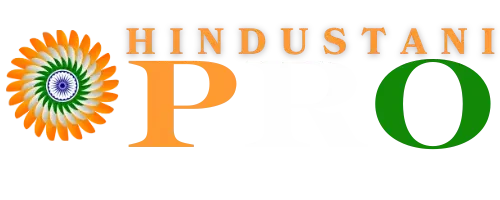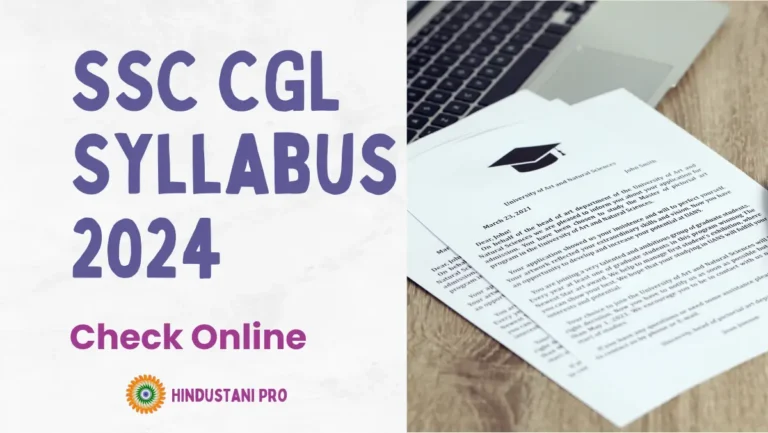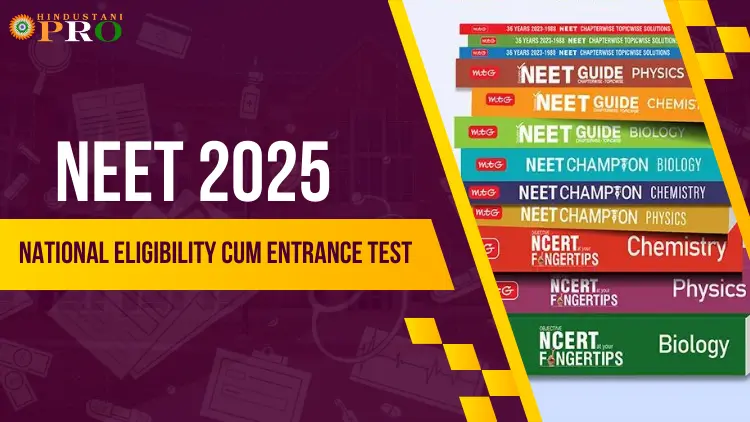CBSE & ICSE School | Find the Difference between CBSE & ICSE
CBSE & ICSE School: The CBSE (Central Board of Secondary Education) and ICSE (Indian Certificate of Secondary Education) are two types of school boards in India. CBSE schools focus more on subjects like Science and Math, making it easier for students who want to become doctors or engineers. The lessons are straightforward and are followed in schools across India.
ICSE schools teach many subjects, like languages, arts, and science, with more detailed lessons. It helps students think creatively and improve their problem solving skills. While CBSE is more common, ICSE is great for students enjoying various subjects. Both are good, and the choice depends on what the student finds easier and more interesting.
CBSE & ICSE School Full Form
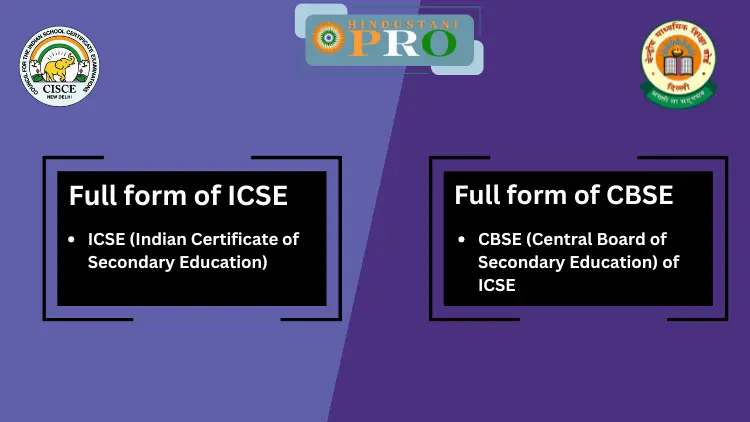
CBSE
The CBSE (Central Board of Secondary Education) is one of India’s biggest and most popular school boards. It uses the same curriculum in all CBSE schools, which helps keep the education system the same everywhere. The board focuses on important subjects like Science, Math, and Social Studies to help students understand basic concepts well. CBSE is also known for its simple and clear textbooks, making it easier for students to study and prepare for exams like JEE and NEET.
CBSE schools are found all over India, which is why many families moving between cities choose this board. The board also includes fun activities, like sports and arts, to help students grow in other areas. CBSE exams test how well students understand basic ideas, making it a good choice for students who want to study engineering or medicine.
ICSE
The ICSE (Indian Certificate of Secondary Education) board is known for its detailed and well rounded curriculum. It covers many subjects, including languages, science, math, arts, and social studies. ICSE focuses on practical learning and helps students develop strong analytical and problem solving skills.
The board places a lot of emphasis on English, which is helpful for students who want to study abroad. ICSE exams are more detailed, testing both understanding and application of knowledge. Though ICSE schools are fewer than CBSE, this board is great for students who enjoy learning a wide range of subjects and want a balanced education.
Visit our site for the latest and trending news: Hindustani Pro
Differences between CBSE and ICSE and State Board
| Aspects | CBSE | ICSE |
|---|---|---|
| Focus | Science and Math | Practical Learning with a wide range of subjects |
| Subjects | Fewer subjects, Mostly Core subjects | More subjects, including arts and languages |
| Exams | Tests core concept | Detailed exams testing both theory and application |
| Textbooks | Straightforward and easy to understand | Detailed and comprehensive |
| Recognition | Popular in India and accepted in many universities | Good for international recognition, especially in English speaking countries |
| Ideal for | Students aiming for careers in engineering or medicine | Students interested in overall development, creativity, or studying abroad |
CBSE & ICSE School Curriculum and Syllabus Structure
| Aspects | CBSE Curriculum | ICSE Curriculum |
|---|---|---|
| Focus | Core Subjects like Science, Math, Social Studies | Balanced focus on all Subjects, including arts and language |
| Syllabus Structure | Simplified, more focused on theory | Detailed, with a focus on practical learning and real life application |
| Languages | Typically offers Hindi and English | Offers a wide variety of languages, including regional languages and foreign languages |
| Depth of Content | Less detailed, more concise | In depth and comprehensive, covering a wider range of topics |
| Learning Style | More theoretical, focusing on understanding core concepts | Focuses on analytical, creative, and problem-solving skills |
| Exams | Exams are based on straightforward questions and direct answers | Exams require detailed answers, application of knowledge, and critical thin |
Which Education Board Is Best in India? CBSE & ICSE School
Choosing between CBSE and ICSE depends on the student’s needs and future plans. Here’s a quick comparison to help you decide:
CBSE (Central Board of Secondary Education):
- Best for: Students aiming for engineering, medicine, or government careers.
- Curriculum: Simple and straightforward, focusing on Science and Math.
- Exams: Designed for competitive exams like JEE and NEET.
- Recognition: Widely accepted across India and many international universities.
- Transferability: Easier for students who move frequently, as CBSE schools are more common nationwide.
ICSE (Indian Certificate of Secondary Education):
- Best for: Students interested in studying abroad or pursuing careers in arts, humanities, or other creative fields.
- Curriculum: Comprehensive, with equal focus on all subjects, including languages, arts, and sciences.
- Exams: More detailed and application based, requiring a deeper understanding of the subjects.
- Recognition: Known for strong English preparation, which helps with global opportunities.
- Difficulty: The syllabus is more detailed and slightly tougher than CBSE.
Bihar Online Shikshakosh Registration: Click here
CBSE vs ICSE School | Fees Comparison
The fees between CBSE (Central Board of Secondary Education) and ICSE (Indian Certificate of Secondary Education) schools in India must note that the fees can vary significantly based on the school’s location, infrastructure, and reputation. However, here is a general comparison:
CBSE Schools
- Average Fees: CBSE schools tend to have lower fees than ICSE schools. The average annual fee ranges from ₹40,000 to ₹1,50,000, depending on the school and city.
- Government Schools: If the CBSE affiliated school is government run, the fees are minimal, sometimes as low as ₹500 to ₹5,000 per year.
- Private CBSE Schools: Fees in private CBSE schools are higher but still affordable for most middle income families.
ICSE Schools
- Average Fees: ICSE schools generally have higher fees due to their emphasis on a broad curriculum and extensive infrastructure. The average annual fee can range from ₹80,000 to ₹2,50,000 or more.
- Private Schools: Since most ICSE schools are privately owned, the cost can be higher, with more emphasis on extracurricular activities and student development.
Advantages and Disadvantages of CBSE & ICSE School
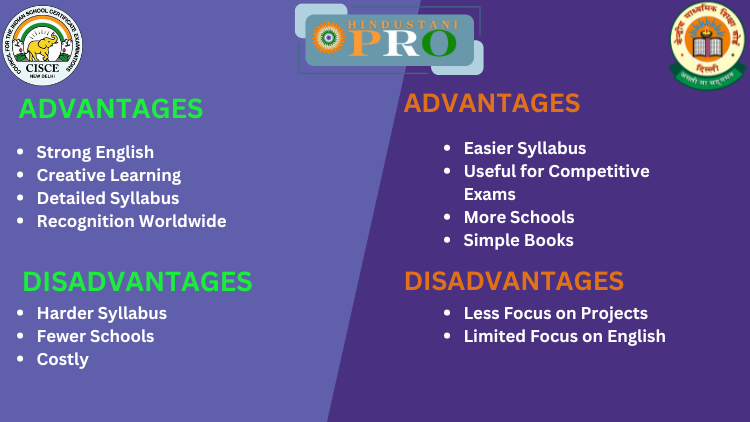
CBSE (Central Board of Secondary Education)
Advantages:
- Easier Syllabus: The subjects and topics are easy to understand. It’s not too hard for students.
- Useful for Competitive Exams: The topics help students prepare for important exams like JEE or NEET for future studies.
- More Schools: Many schools in India follow CBSE, so you can find one almost everywhere.
- Simple Books: The books are not very tough, and they use NCERT books, which are easy to follow.
Disadvantages:
- Less Focus on Projects: CBSE schools don’t focus much on projects or practical activities.
- Limited Focus on English: English grammar and language may not be as strong as in ICSE.
ICSE (Indian Certificate of Secondary Education)
Advantages:
- Strong English: The ICSE board focuses a lot on English, so students become very good at it.
- Creative Learning: It encourages learning through projects, experiments, and activities, which makes learning fun.
- Detailed Syllabus: The syllabus covers many topics in detail, which helps students learn deeply.
- Recognition Worldwide: ICSE is recognized globally, which is helpful if you plan to study abroad later.
Disadvantages:
- Harder Syllabus: The subjects can be more difficult, and the books are sometimes more detailed.
- Fewer Schools: There are fewer ICSE schools in India than CBSE, so it might be hard to find one nearby.
- Costly: ICSE schools often have higher fees compared to CBSE schools.
CBSE & ICSE school, which is better for medical?
- CBSE is generally considered better for medical studies because it is directly linked to NEET and uses NCERT books, which are key for exam preparation.
- ICSE is excellent for overall knowledge, but students aiming for medical exams will likely have to put in extra effort to cover the NEET syllabus.
CBSE & ICSE School Grade System
ICSE Grading System
| Grade | Standard |
|---|---|
| 1/ 2 | Very Good |
| 3 / 4 / 5 | Pass with Credit |
| 6/ 7 | pass |
| 8/ 9 | Fail |
CBSE Grading System
| Grade | Grade Points | Marks range |
|---|---|---|
| A1 | 10 | 91-100 |
| A2 | 9 | 81-90 |
| B1 | 8 | 71-80 |
| B2 | 7 | 61-70 |
| C1 | 6 | 51-60 |
| C2 | 5 | 41-50 |
| D | 4 | 33-40 |
| E1 And E2 | 0 | 21-32 |
CBSE and ICSE Exam Pattern
CBSE Exam Pattern
Structure:
- CBSE exams are held for Classes 10 and 12.
- There are two types of exams:
- Formative Assessment (periodic tests and projects).
- Summative Assessment (final exams at the end of the year).
Subjects:
- Students take subjects like Mathematics, Science (Physics, Chemistry, Biology), and languages (English, Hindi).
- Class 10 has 5 main subjects, while Class 12 usually has 5 or 6 subjects, including optional ones.
Marks Distribution:
- Each subject typically has 100 marks.
- The exam is divided into theory (written exam) and practical (for science subjects).
- Students must score at least 33% to pass.
Duration:
Exams are usually 3 hours long for each subject.
ICSE Exam Pattern
Structure:
- ICSE exams are held for Class 10.
- There is a year end exam for all subjects and internal assessments (like projects and practicals).
Subjects:
- Students take a variety of subjects, typically around 6 to 8, including English, Mathematics, Science, and a second language.
- ICSE focuses on a broader curriculum, so students study more subjects compared to CBSE.
Marks Distribution:
- Each subject is usually graded out of 100 marks.
- There is a strong emphasis on practical exams in subjects like Science, which can also be around 20 to 30 marks.
Duration:
- Each exam lasts for 2 to 3 hours, depending on the subject.
Bottom Line
CBSE & ICSE Schools are two popular school boards in India. CBSE is better for students who want to become engineers or doctors because it focuses on Science and Math and helps with exams like NEET and JEE. It has lower fees and is found in many places. ICSE is good for students who enjoy learning a lot of different subjects, including languages and arts. It helps students think creatively and prepares them for studying abroad, but it usually has higher fees. Choosing between CBSE & ICSE school depends on what the student likes and what they want to do in the future. Both are good options.
